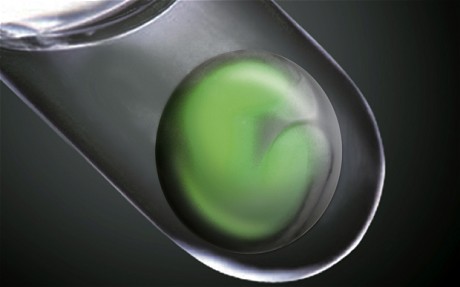The Fourteen-Day Embryo Rule

Picture by www.art-2-vie.fr
As research in human development continues to grow, scientists are finding themselves restrained by preemptive laws. Embryologic researchers are certainly feeling this way, as their experiments continue to push the boundaries set forth by international law. In regards to embryonic development, scientists are currently limited to growing embryos for 14 days before terminating their experiments.
Embryonic studies are conducted by the in vitro, or artificially controlled, cultivation of embryos in test-tubes and laboratories. These embryos normally only last a week before dying, so the restrictive laws have not bothered embryologists before.
However, in early May, two groups of scientists managed to sustain an embryo in vitro for 13 days. This scientific achievement hinted that the laws prohibiting prolonged cultivation of embryos would soon begin to conflict with progress in human developmental research.
The “14-day rule” prohibits artificial embryonic development past the formation of the ‘primitive streak,’ a ring of cells that makes up the embryo’s head to tail axis. The ring is significant because it indicates that the characterization of the embryo is assured. This means that the embryo can no longer divide or split into two separate entities.
This biological fact was used by Mary Warnock to devise the “14-day rule” and to appease ethical and religious principles. Warnock argued that God could not give a soul to an embryo which could at any moment split into two, or else have two separate persons sharing the same soul. Therefore, God could only make an embryo a person after the 14 day period.
The law was adopted by the United Kingdom in 1984 and by other countries, including the United States, years later, because of moral and ethical considerations. Some concerned citizens consider the formation of the ‘primitive streak’ to be the first significant sign of life, and therefore, argue against the termination of embryos after its formation. Others argue that life should only be significantly acknowledged when the fetus can feel pain or even earlier at mere fertilization.
Regardless, any concerned citizens should reevaluate the importance of ethics in the greater context of the scientific advances that research of embryonic growth could provide. With the prolonged sustenance of embryos becoming easier to achieve and more attainable, human development and moral principles are set on an unavoidable road of conflict.
The possibilities in scientific development are too great to ignore, and the potential discoveries that could be made certainly outweigh the few and diminishing concerns about artificial embryo growth. How far the reforms in research limitations go are a different matter, as complete prohibition or complete revocation seem too extreme.

Lawrence Vuong is a copy editor at Quartz Hill High. Lawrence benches 180. He enjoys carbs, sleep, and cramming. He does not enjoy cardio, leg day, or...







